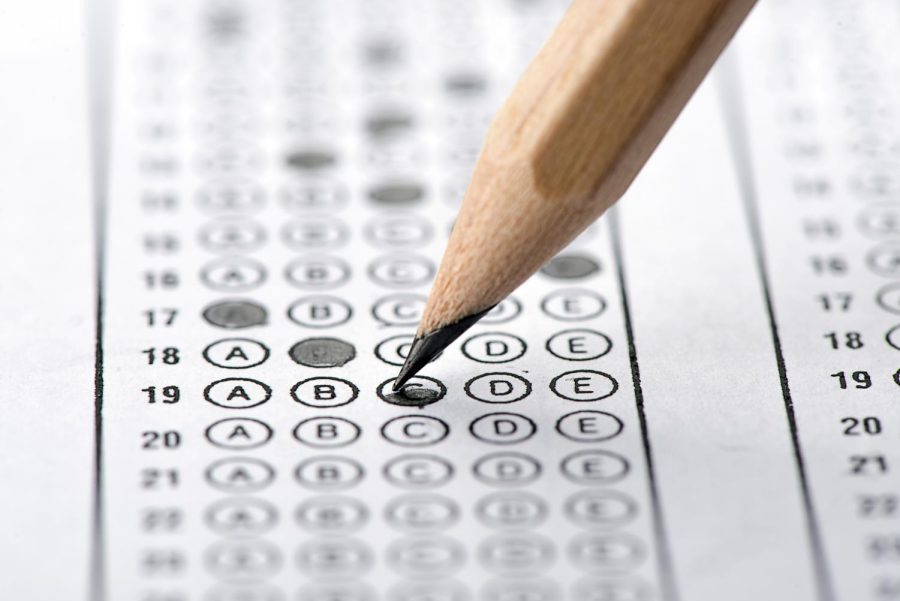Tests: Worth It or Worrisome?
With finals week coming up in just a couple days, King’s Way students have started to think forward to tests; however, with tests often comes stress and anxiety. I interviewed some KW teachers to learn their philosophy on testing, as well as a few students to learn about their experience with the testing strategy at King’s Way.
Mr. Hillstrom is the Pre-Calc and AP Calculus teacher. He says that his testing philosophy is that he thinks tests should be worth enough that they matter, but not enough to totally sink someone’s grade. He thinks that test should be about celebrating someone’s wins, rather than focusing on the places where they’ve got things wrong. He explained that some of his experiences in college influenced the way he tests students, almost working on a cautionary tale of how he didn’t want to teach. Tests are supposed to reward, not punish. He remarked that he wants to create tests that matter, but that students can still do them. He admitted that for calculus, it still requires some changes. For most math classes, the program he used gives students a very generous three trials before it counts the question as wrong. But for calculus, tests are given on paper so there isn’t an option to allow multiple tries, just partial credit. He remarks that this switch can be jarring, and needs to be fixed. Mr. Hillstrom also offers students help by instructing students after school and going over practice tests, which elicits gratefulness from his Calculus students. Repetition is how you learn things. He also gave great advice on how to deal with test anxiety. He explained that it can feel like an endless loop, but he says that one way he’s found out of that is to reconnect with your body. Splash your hands with cold water, go on a walk, dissociate into some music, breath deeply, etc.
Mr. Rounsley is the Apologetics and Senior Bible teacher. His beliefs are that tests are a barometer for where his students are. He wants his students to actually learn and know the material, not just memorize it. He doesn’t want students to be surprised on a test– no “gotcha” moments. Mr. Rounsley said he has vivid memories of cramming for a test, “that’s probably how I was introduced to coffee,” he remarked. He said that test anxiety can be diminished by proper studying and preparation, and that it can actually be a helpful motivator.
I also interviewed two students about the effects that they’ve had on their mental health and anxiety levels. One admitted that “I defined myself by the validation that they gave me.” However, this meant that if they didn’t receive a good grade, her self worth declined. Another student says that as a senior, tests don’t really affect them as much. She explained, “As seniors, we have other stressors to worry about.” Worrying about college, our futures, and our current grades is a lot to think about. In a study done in 2016, 35 percent of students had a large spike in cortisol due to stress, which causes a lack of focus and recall (ascd.org). This shows that a lot of the stress that students face doesn’t actually help them when they are actually testing, but can help cause them to study and prepare more than they probably would have without the stress as a trigger.
I believe that tests are helpful to teachers to help them know where their students are, but they do cause a lot of unnecessary stress when tests are made the center of the curriculum and when there is no ability to raise your grade if you bombed a single test. Even though they do cause a lot of stress, unless the entire education system is changed, changing King’s Way’s testing system would be for naught because it prepares students for college-life or a second education. When it comes to studying finals, taking a mental break and putting some time aside for yourself, per Mr. Hillstrom’s advice, can be greatly beneficial. So set some time aside, take a walk, pick up a coffee, and good luck on studying!

